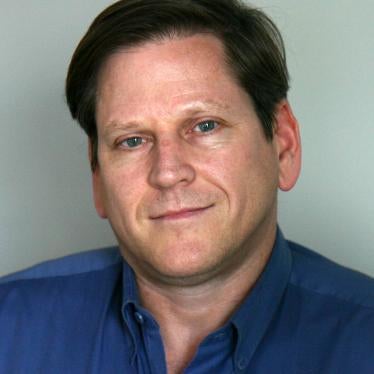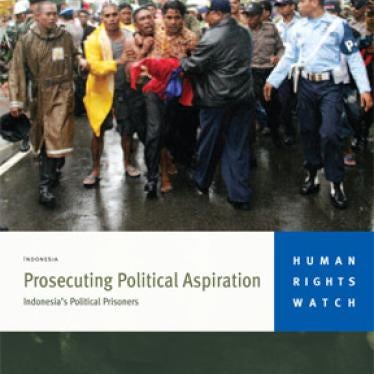On June 29, 2007, a village teacher led more than 20 young men into an Ambon stadium in an unauthorized performance of the cakalele , the traditional Maluku dance, in front of President Susilo Bambang Yudhoyono and dozens of dignitaries. Suddenly, the dancers unfurled the banned Republic of South Maluku flag, creating an uproar and prompting Yudhoyono to take over the microphone, ordering their arrest.
Johan Teterisa, the teacher, was arrested and taken to the police's Detachment 88 antiterror office in Ambon.
Police officers allegedly kicked him and beat him with their bare hands, a chair and iron bars, breaking his ribs.
They demanded he sign a letter calling on other activists seeking independence for Maluku to disband their movement.
He refused. In the days after the dance, police rounded up more than 100 activists in and around Ambon whom the authorities believed supported the independence cause.
The following April, the Ambon District Court sentenced Teterisa to life in prison for treason. Other colleagues who had displayed the flag received sentences of seven to 20 years.
Teterisa later appealed and his prison term was decreased to a still outrageous 15 years.
Teterisa never fully recovered from the torture he endured after his arrest.
"The police and the prison never let me go to a doctor," he told Human Rights Watch recently in Lowokwaru Prison in Malang, East Java. "I cannot sleep on my side. I also have headaches."
A senior EU delegation arrives in Jakarta next week for the first official dialogue between the European Union and Indonesia on human rights.
The delegates are likely to be told that, unlike during the Suharto era that ended in 1998, Indonesia has no more political prisoners.
However, this is far from the truth. Indonesia continues to severely punish and imprison activists - mostly from Maluku and Papua - for exercising their right to peacefully express their political views.
In Papua, Filep Karma is serving a 15-year prison sentence for treason for his involvement in raising the Morning Star flag, the banned symbol of the Papuan independence movement, at a rally in December 2004.
Karma has also faced various forms of mistreatment in custody by the police and prison guards.
Now he is lying in his prison cell, waiting for the Justice and Human Rights Ministry to permit him to undergo urgently needed prostate surgery at a modern hospital in Jakarta.
In February, government authorities in Jayapura acknowledged that at least 48 political prisoners from Papua were languishing in prison.
According to the Maluku Civil Society Advocacy Team (Tamasu), an organization working to assist prisoners in Maluku, there are at least 70 political prisoners being held, including Teterisa and 36 others who are in prisons in Java, far from their families.
But it's not just the pro-independence activists who face imprisonment for peacefully speaking out.
In Java, journalists, civil society activists and ordinary citizens who criticize or make comments perceived as threatening the political or economic interests of the rich and powerful, too often find themselves subjected to criminal defamation charges.
Everyday acts - such as complaining about treatment received at a hospital or asking a local official about a land assessment - can result in a defamation prosecution and a prison sentence.
And while the government goes after those for expressing their views, it still hasn't found the will to prosecute senior government or military officials for serious human rights violations.
While the country's military took a step back from politics a decade ago, officers have yet to be brought to justice for the massacres committed by their troops in East Timor, Papua, Aceh, Maluku, Kalimantan and elsewhere.
The case of Munir Thalib, the highly regarded human rights defender who was fatally poisoned on a Garuda Indonesia flight six years ago, remains unresolved, despite strong evidence it was orchestrated by high-ranking intelligence officers.
Indonesia increasingly claims the mantle of being a champion of democracy and human rights in Southeast Asia.
The upcoming dialogue with the European Union is an excellent opportunity for the nation to back up its claim.
Both the European Union and Indonesia are to be commended for agreeing to hold a high-level annual dialogue on human rights, but they will need to show it can produce results.
Few of the issues likely to be on the table are as straightforward as ensuring the release of all those imprisoned for peaceful freedom of expression.
A good start would be for the European Union to urge the immediate release of Teterisa, Karma and the more than 100 other Papuan and Maluku activists currently imprisoned - and for Indonesia to do just that.
Phil Robertson is deputy Asia director at Human Rights Watch.








